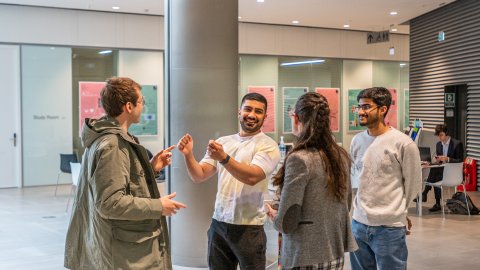13:00
Topologically good cover from gradient descent
Note: we would recommend to join the meeting using the Teams client for best user experience.
Abstract
The cover of a dataset is a fundamental concept in computational geometry and topology. In TDA (topological data analysis), it is especially used in computing persistent homology and data visualisation using Mapper. However only rudimentary methods have been used to compute a cover. In this talk, we formulate the cover computation problem as a general optimisation problem with a well-defined loss function, and use gradient descent to solve it. The resulting algorithm, ShapeDiscover, substantially improves quality of topological inference and data visualisation. We also show some preliminary applications in scRNA-seq transcriptomics and the topology of grid cells in the rats' brain. This is a joint work with Luis Scoccola and Heather Harrington.
Qdot, an Oxford spin-out based at Oxford Airport, are working towards the dream of clean, sustainable flight and they are recruiting a Numerical Methods Engineer to take a central role in developing numerical models and simulation tools to solve complex physical problems.
Image: Joseph Mallord William Turner - Steam-Boat off a Harbour’s Mouth
The Anomalous Mathematical Patterns Sci-Art competition invites you all to vote for the People’s Choice Prize artwork.


